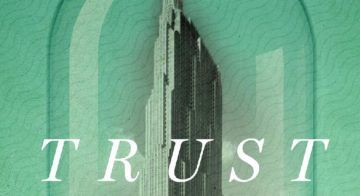Rhian Sasseen talks to Hernan Diaz at The Paris Review:
 There’s always something relevant in clichés. If you think about it, every literary genre is a collection of clichés and commonplaces. It’s a system of expectations. The way events unfold in a fairy tale would be unacceptable in a noir novel or a science fiction story. Causal links are, to a great extent, predictable in each one of these genres. They are supposed to be predictable—even in their surprises. This is how we come to accept the reality of these worlds. And it’s so much fun to subvert those assumptions and clichés rather than to simply dismiss them, writing with one’s back turned to tradition. I should also say that these conventions usually have a heavy political load. Whenever something has calcified into a commonplace—as is the case with New York around the years of the boom and the crash—I think there is fascinating work to be done. Additionally, when I looked at the fossilized narratives from that period, I was surprised to find a void at their center: money. Even though, for obvious reasons, money is at the core of the American literature from that period, it remains a taboo—largely unquestioned and unexplored. I was unable to find many novels that talked about wealth and power in ways that were interesting to me. Class? Sure. Exploitation? Absolutely. Money? Not so much. And how bizarre is it that even though money has an almost transcendental quality in our culture it remains comparatively invisible in our literature?
There’s always something relevant in clichés. If you think about it, every literary genre is a collection of clichés and commonplaces. It’s a system of expectations. The way events unfold in a fairy tale would be unacceptable in a noir novel or a science fiction story. Causal links are, to a great extent, predictable in each one of these genres. They are supposed to be predictable—even in their surprises. This is how we come to accept the reality of these worlds. And it’s so much fun to subvert those assumptions and clichés rather than to simply dismiss them, writing with one’s back turned to tradition. I should also say that these conventions usually have a heavy political load. Whenever something has calcified into a commonplace—as is the case with New York around the years of the boom and the crash—I think there is fascinating work to be done. Additionally, when I looked at the fossilized narratives from that period, I was surprised to find a void at their center: money. Even though, for obvious reasons, money is at the core of the American literature from that period, it remains a taboo—largely unquestioned and unexplored. I was unable to find many novels that talked about wealth and power in ways that were interesting to me. Class? Sure. Exploitation? Absolutely. Money? Not so much. And how bizarre is it that even though money has an almost transcendental quality in our culture it remains comparatively invisible in our literature?
more here.
